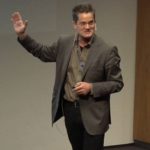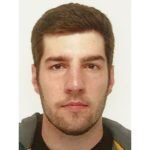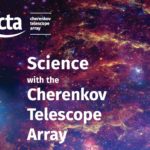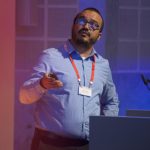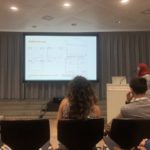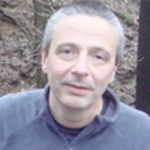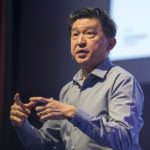In this video from PASC18, Thomas Schulthess provides an update on CSCS. “CSCS develops and operates cutting-edge high-performance computing systems as an essential service facility for Swiss researchers. These computing systems are used by scientists for a diverse range of purposes – from high-resolution simulations to the analysis of complex data.”
Generative Models for Application-Specific Fast Simulation of LHC Collision Events
Maurizio Pierini from CERN gave this talk at PASC18. “We investigate the possibility of using generative models (e.g., GANs and variational autoencoders) as analysis-specific data augmentation tools to increase the size of the simulation data used by the LHC experiments. With the LHC entering its high-luminosity phase in 2025, the projected computing resources will not be able to sustain the demand for simulated events. Generative models are already investigated as the mean to speed up the centralized simulation process.”
The CLAW DSL: Abstractions for Performance Portable Weather and Climate Models
Valentin Clement from the Center for Climate System Modeling in Switzerland gave this talk at PASC18. ‘In order to profit from emerging high-performance computing systems, weather and climate models need to be adapted to run efficiently on different hardware architectures such as accelerators. This is a major challenge for existing community models that represent very large code bases written in Fortran. We introduce the CLAW domain-specific language (CLAW DSL) and the CLAW Compiler that allows the retention of a single code written in Fortran and achieve a high degree of performance portability.”
Handling and Processing Data from the Cherenkov Telescope Array
Etienne Lyard from the University of Geneva, Switzerland presents: Handling and Processing Data from the Cherenkov Telescope Array.
gave this talk at PASC18. “The Cherenkov Telescope Array (CTA) will be the world’s largest and most sensitive high-energy gamma-ray observatory. Composed of more than 100 telescopes of different sizes between 4 and 23 meters in diameter, it will operate from two separate sites in Chile and at the Canary Islands. It will generate up to 10PB of raw data per year that will be stored in a distributed archive. This talk will outline the current status, plans and challenges that we face to implement the analysis and data pipeline of CTA.”
Interview: Dan Jacobson from ORNL on Why PASC19 will be The Show to Attend Next Year
In this video from PASC18, Dan Jacobson from ORNL describes the highlights from the conference and why scientists and engineers should consider attending PASC19 in Zurich. “Next year, PASC19 happens the week before the ISC 2019 conference in Germany. Be sure to catch both shows!”
Training Generative Adversarial Models over Distributed Computing Systems
Gul Rukh Khattak from CERN gave this talk at PASC18. “We use a dataset composed of the energy deposition from electron, photons, charged and neutral hadrons in a fine grained digital calorimeter. The training of these models is quite computing intensive, even with the help of GPGPU, and we propose a method to train them over multiple nodes and GPGPU using a standard message passing interface. We report on the scalings of time-to-solution.”
PASC18 Panel Discussion Big Data vs. Fast Computation
“The panelists will discuss the critical challenges facing key HPC application areas in the next 5-10 years, based on a mix of knowledge and speculation. They will explore whether we need to make radical changes to our practices, methods, tools, and techniques to be able to use modern resources and make faster and bigger progress on our scientific problems.”
Video: Recent Results and Open Problems for Resilience at Scale
In this video from PASC18, Yves Robert from École normale supérieure de Lyon in France presents: Recent Results and Open Problems for Resilience at Scale. “The talk will address the following three questions: (i) fail-stop errors: checkpointing or replication or both? (ii) silent errors: application-specific detectors or plain old trustworthy replication? In terms of workflows: how to avoid checkpointing every task?”
Dr. Eng Lim Goh presents: Prediction – Use Science or History?
Dr. Eng Lim Goh from HPE gave this keynote talk at PASC18. “Traditionally, scientific laws have been applied deductively – from predicting the performance of a pacemaker before implant, downforce of a Formula 1 car, pricing of derivatives in finance or the motion of planets for a trip to Mars. With Artificial Intelligence, we are starting to also use the data-intensive inductive approach, enabled by the re-emergence of Machine Learning which has been fueled by decades of accumulated data.”

